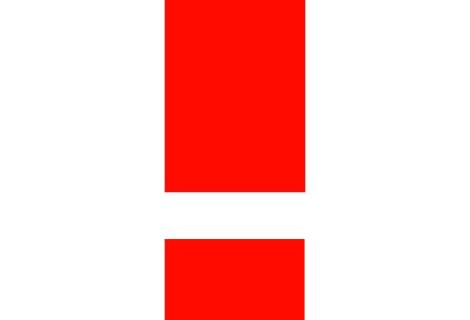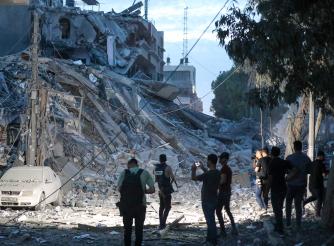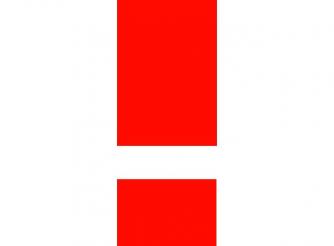"We are living in a situation we cannot call humane”: Hundreds of thousands of displaced people face catastrophic humanitarian conditions in Rafah

Conditions in Rafah are at breaking point with more than one million people crammed into an extremely overcrowded area and more arriving by the day. With shelters completely over capacity, hundreds of thousands of people are sleeping out in the open without adequate clothing and shelter against the cold and rain, or sharing a tent with up to 20 other people. Each day is a struggle to find food and water, with the entire population of Gaza now facing crisis levels of hunger and the risk of famine increasing by the day.
Abdul, who is part of a youth group which partners with ActionAid Palestine, told us about the catastrophic humanitarian conditions people are facing in Rafah. He said: “We are living in a situation that we cannot call humane. There is no health, no food, and there are no basic necessities of life.’
“There are [not enough] tents that can take all the people who came from the centre [of Gaza]. They are sleeping in the open. In order to buy a tent, you must have 3,000 shekels [£635]. If you want to buy anything, like food in the morning, noon, or night, it must be one meal. You collect it in the middle of the day, this meal costs at least 50 shekels [£10.58].
“As for the health situation, whoever is injured must stay at home because there is no place to receive [them] at all. There is no electricity. We use solar energy or solar cells to charge on normal days... You must wait three days to get an electric charge. There are queues. Queues for sweet water, queues for salt water, queues for food, and queues for drink, everything has a queue.”
Illness and disease is spreading rapidly. In a single week in December, UNICEF reported an average of 3,200 new cases of diarrhoea each day among children under five – when before October 7, it would typically record a total of 2,000 cases in this age group each month. Maintaining hygiene levels is near impossible due to a lack of safe water and sanitation, with hundreds of people having to share a single toilet or shower.
The picture is similar elsewhere in the south and middle areas of Gaza, where airstrikes have intensified in recent days. More than 85% of the population – some 1.9million people – have been displaced from their homes, many multiple times, and face a daily struggle to meet their basic needs.
Layla* has been displaced from her home and is now staying in a tent with her children and extended family in a camp in southern Gaza which she says is home to 100,000 people. She said:
“We live in tents. There are none of the necessities [needed] for the life that we live, and we face the suffering of [finding] water and food and [being] hungry.
“We were flooded during the nights that rained on us. [Our] children [are] without any means to be able to warm them. There are no covers, nothing.
"Our mother is an asthma patient, and she is also injured, from a traffic accident during the war. My sister is also about to give birth. We do not have blankets or things to keep her warm or to warm our children with.”
Adara* has been displaced from her home in the north and is currently living in a tent with her four children – the youngest of whom is a year and a half – in Khan Younis, while her husband remains in the north.
She said: “Thank God we found a so-called ‘shelter’, but frankly, for me, my children, and my family, it is not a shelter. Here I suffer from the cold because my children and I cannot find enough blankets. We suffer a lot whenever we want to go to the bathroom. We stand in line for a long time and the bathrooms are far away. We suffered from gastroenteritis more than once. My children all caught it in a row and recovered again...I do not have shelter, nor do I have an income or money to spend or buy anything with"
Amid the staggering level of need, the amount of aid entering Gaza continues to be woefully insufficient, with only around 100 trucks carrying food, medicine and other supplies currently entering each day on average. Despite the huge challenges, ActionAid and its local partners such as Wefaq Association for Women and Childcare (WEFAQ) has been supporting people in Rafah by providing food, hygiene kits and ‘winter kits’ containing warm clothes, blankets and mattresses, as well as providing families with cash assistance so they can buy essential items. In partnership with WEFAQ, ActionAid is also building 60 toilet and shower blocks for women and girls in Rafah, giving them a private space to keep themselves clean in dignity.
Riham Jafari, Advocacy and Communications Coordinator at ActionAid Palestine said: “The conditions people in Rafah are facing are beyond belief, as infrastructure buckles under the pressure of catering to a population almost four times its usual capacity and aid trickles in at a painfully slow pace. We’ve heard miserable stories of 20 family members having to squeeze into a single tent, people being forced to queue for hours to use the toilet and parents skipping meal after meal so that they can at least give their children something to eat. With more people fleeing the middle area and other areas in the south of Gaza as airstrikes intensify, it’s likely the situation will get even worse. Only an immediate and permanent ceasefire will stop the death toll rising any higher and allow enough life-saving aid to enter Gaza and bring some relief to those struggling for survival in Rafah and elsewhere.”
Contact the ActionAid press office on uk.media@actionaid.org or on 07753 973 486.


